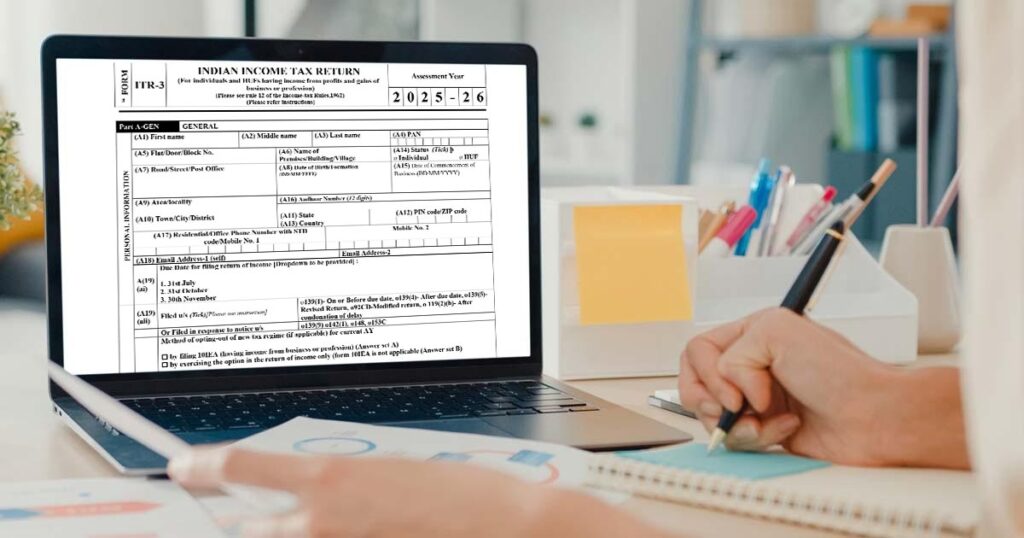Intraday trading means buying and selling financial products on the same day of trading. Traders try to profit from minor variations in prices and typically close off all positions before the market closes. Intraday trading is considered speculative business income for taxation purposes in India.
Understanding Intraday Trading and Taxation
Intraday trading is the swift execution of deals without overnight carrying of the securities. As no investment is contemplated but only trading on account of movement in the market, this income falls under the heading “Income from Business or Profession.” In contrast to capital gains, this head insists on keeping books of accounts as well as auditing requirements in a few situations.
Tax on Intraday Trading
The revenue earned through tax on intraday trading is considered speculative business income. Speculative transactions, as per the Income Tax Act, are those wherein contracts are settled otherwise than by actual delivery. Intraday trades do not lead to the delivery of securities; hence, they come under this category.
Applicability of ITR Forms
Intraday traders must employ the right ITR form based on their overall income and source of income. Traders who are involved in intraday trading must file ITR-3 since this form is for individuals and Hindu Undivided Families (HUFs) with income from business or profession.
If a trader chooses the presumptive taxation regime under Section 44AD, then he can use ITR-4. Nevertheless, presumptive taxation is not available on speculative business income, and therefore, ITR-3 continues to be the correct form for the majority of intraday traders.
Maintenance of Books and Audit Requirements
Merchants have to keep meticulous transaction records, including trade-wise profit and loss statements, contract notes, and ledger accounts. According to Section 44AB of the Income Tax Act, in the case of higher turnover (more than the notified amount, which is ₹1 crore or ₹10 crore in the case of cash transactions), a tax audit becomes obligatory.
Advance Tax Compliance
Intraday traders can also be required to pay advance tax if their overall tax liability crosses ₹10,000 in a year. Advance tax has to be paid in four installments during the year to escape interest under Sections 234B and 234C. Failure can result in interest and penalty.
Filing of ITR and Declaration of Income
While filing ITR, traders are required to show the speculative business income under the “Profits and Gains of Business or Profession.” They need to reveal other sources of revenue like interest, rental, or salary if available. Proper reporting of income guarantees transparency and prevents future inquiry.
Pre-populated information provided in the ITR form and Form 26AS and AIS should be verified by intraday traders, including details given in the 26AS form and AIS. These should be cross-checked against actual records to be submitted. In case the information mismatches, reconciliation thereof with the authority or institution of concern is warranted.
Demat Account for Minor and Tax Ramifications
Minors can also have demat accounts, but these accounts need to be opened and managed by a guardian until the minor becomes a major. Though minors are legally allowed to hold and deal in securities, any income derived from these accounts is generally aggregated with the income of the parent or guardian under Section 64(1A) of the Income Tax Act.
Set-Off and Carry Forward of Losses
Intraday losses, which come under the classification of speculative losses, can only be offset with speculative gains. If the loss is not brought to account during the same year, it is carried forward over the next four years. Nevertheless, this carryforward is made only if the return is furnished within the due date prescribed under Section 139(1).
Traders should file their returns on time and keep a record of previous returns so that loss adjustments can be accounted for in future years. Filing after the deadline will lead to the loss of the right to carry forward the loss.
Conclusion
Indian intraday traders need to follow certain tax guidelines and reporting procedures while filing their ITR. The categorization of income as speculative business income, the relevant ITR forms, the use of demat account for minors, and advance tax liability are the key considerations. Keeping proper books, calculating turnover correctly, and adhering to compliance timelines are the key procedural steps involved in the process. This guide ensures intraday traders adopt a systemized approach for income tax filing, adhering to the relevant legal provisions.






